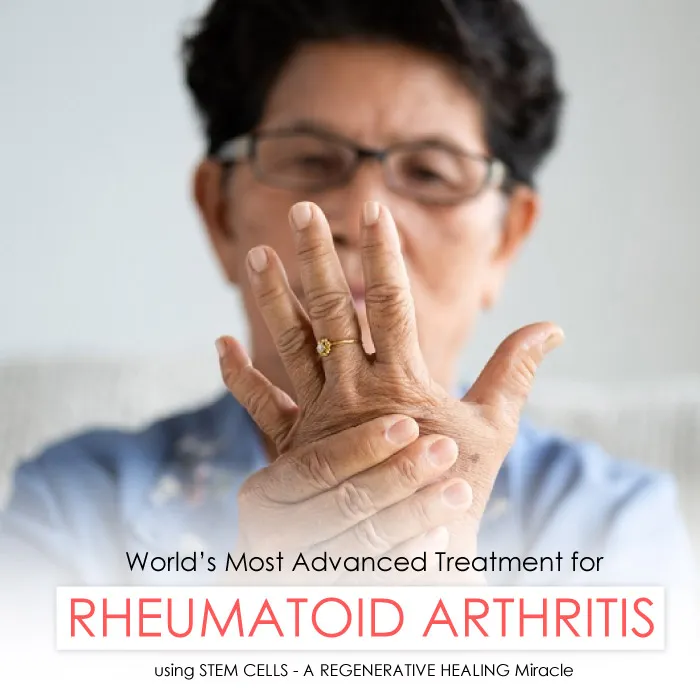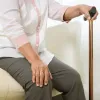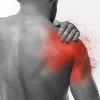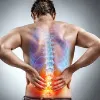Symptoms
The main indications of rheumatoid arthritis include:
joint swelling
warmth and redness
joint pain
stiffness, particularly first thing in the morning or after resting still for a long time
Other symptoms can involve:
weight loss
sweating
a poor appetite (not feeling hungry)
dry eyes – as a result of swelling
chest pain – as a result of irritation
drowsiness and lack of energy – this can be known as fatigue
a high temperature, or a fever
Rheumatoid arthritis can impact any joint in the body, even though it is frequently felt in the small joints
in the hands and feet first. Both sides of the body are normally impacted at the same time, in the same
way, but this doesn't continually happen. A few people grow fleshy lumps known as rheumatoid
nodules, which take shape under the skin around concerned joints. They can occasionally be painful but
usually are not.
What causes rheumatoid arthritis?
Some of the factors include:
Age
Rheumatoid arthritis (RA) can start at any age, but the possibility increases with age. The arrival of RA is
greatest among adults in their sixties.
Genetics/inherited traits
Individuals born with certain genes are more likely to get RA. These genes, known as HLA (human
leukocyte antigen) class II genotypes, can also make your disease worse. The risk of RA might be
greatest when people with these genes are subjected to factors such as when a person is obese or
smoking.
Early life exposures
some early life exposures might increase the risk of developing RA later. For instance, a study found that
children whose mothers smoked had an increased risk of getting RA as adults. Kids of lower-income
parents are also at increased risk of getting this disease as adults.
Smoking
Many studies indicate that smoking boosts an individual's risk of developing RA and can worsen the
disease.
History of live births
Females who have never given birth might be at a greater risk of developing this disease.
Obesity
Being overweight can boost the risk of developing RA. Surveys examine the role of obesity and have
found that the more overweight an individual is, the higher the risk of developing this disease becomes.
Traits that can decrease risk:
Unlike previous factors mentioned before, which might increase the risk of developing the disease, at
least one characteristic might decrease the risk of developing RA.
Breastfeeding
females who have breastfed their kids have reduced the risk of developing this disease
Complications
Rheumatoid arthritis boosts your risk of growing:
Osteoporosis
RA itself, with some medicines used for treating it, can increase your risk of developing osteoporosis.
This is a condition that weakens your bones and makes them more susceptible to fracture
Rheumatoid nodules
These are form bumps of tissue that form around pressure points like elbows. But these bumps can form
anywhere in the body, including your lungs and heart.
Infections
RA itself and many of the medicines used to fight it can impair the immune system, causing increased
infections. Hence, protect yourself with vaccinations to avoid diseases like pneumonia, shingles,
influenza.
Dry eyes and mouth
Individuals with RA are much more likely to grow Sjogren's syndrome, a disorder that reduces the
amount of moisture in your eyes and mouth.
Abnormal body composition
the proportion of fat to mass is usually higher in individuals who have this disease, even in those who
have a regular body mass index.
Carpal tunnel syndrome
If RA impacts your wrists, the swelling can compress the nerve that serves most of your fingers and
hands.
Lung disease
Individuals with this disease have a better risk of inflammation and scarring of lung tissues, which often
leads to shortness of breath.
Heart problems
this disease can boost your risk of blocked and hardened arteries and inflammation of the SAC that
encloses your heart.
How will rheumatoid arthritis affect me?
This disease can impact different people in different ways. Hence, you cannot always predict how the
condition might develop for you. If you smoke, it's a great idea to quit after diagnosis of this disease
because:
it might be worse in smokers than in nonsmokers
smoking can worsen how well your medication works
Physical activity is also essential as it can boost your symptoms and benefit your overall health. X-rays
and blood tests will help your doctor evaluate how fast your disease develops and what the outlook for
the later days might be like. This also helps your doctor to determine which form of treatment is best for
you.
The outlook for individuals with RA is improving gradually as new and more effective treatments
become available. It is possible to lead a fully active life with this condition. However, taking your
medicines as prescribed is vital and making necessary lifestyle alterations.
Diagnosis
A finding of rheumatoid arthritis is established on your symptoms, a physical exam, and the results of x-
rays, scans, and blood tests. It can be hard to diagnose because no exam can show you definitely have it.
There are also rather a few situations that have similar symptoms.
Your doctor will ask about your indications and conduct a physical examination. They will look for puffy
joints and check how well your joints go. Rheumatoid arthritis can impact different body parts at once,
so it's important to tell your doctor about all the signs you've had, even if they don't appear to be
related. If they believe you have rheumatoid arthritis, they will suggest you to a rheumatologist and
might arrange blood tests to help verify a diagnosis.
Blood tests
There's no separate blood test that can prove you have rheumatoid arthritis. However, there are some
tests that can show potential signs of the condition. Some of the primary tests are summarized below.
Full blood count
A full blood count determines the number of red blood cells you have. These have iron around your
body, and a low quantity of red blood cells means you have minimal iron content. This might suggest
you have anemia and is widespread in individuals with RA, although having anemia doesn't confirm you
have RA.
Rheumatoid factor and anti-CCP antibodies
About half of all individuals with rheumatoid arthritis have rheumatoid influence in their blood when the
disorder starts. However, around 1 in every 20 individuals without rheumatoid arthritis also test certain
for rheumatoid factor.
There is a different antibody test called anti-CCP that you can take. Individuals who test positive for anti-
CCP are likely to get rheumatoid arthritis. However, not everybody that has the disorder has this
antibody.
How to treat it at home?
Exercises and physical therapy
Workouts and physical therapy are one of the main established treatments to switch rheumatoid
arthritis. It's safe and efficient when done properly and under the guidance of a physical therapist. It can
make up your power to help you better monitor and handle your joint or muscle pain.
Probiotics to Reverse Rheumatoid Arthritis
As with most diseases, your diet is very valuable. Probiotics are living microbes and provide health
benefits when consumed in the right amounts. They help take over your gut with health-friendly
bacteria. You find them in a variety of distinct foods such as sauerkraut, kefir, yogurt, tempeh, and
kimchi.
Other Add-ons and Magnesium Oil
These involve joint supplements which can improve and are beneficial for the joints. Common joint
supplements that might assist you include chondroitin, glucosamine, and turmeric's well-known
discomfort reliever.
How to avoid rheumatoid arthritis?
Take Your Medicines on Schedule
The most valuable thing you can do to prevent this disease is to take your medicine on time. A regular
routine helps you keep a steady level of medication in your body. Don't skip medicine doses. Use a
calendar, pillbox, or alarm to keep you on track.
Know What Causes Your Flares
It's time for you to do some detective work. If you can find out what's making your signs worse, you
might be able to prevent difficulties down the road.
RA is unpredictable. It can be improved or worse for purposes you can't control. Infections can be a
culprit. So can anxiety. Some individuals get flares if they exaggerate it. Others say some foods trigger
problems, but there aren't many studies to back this up.







